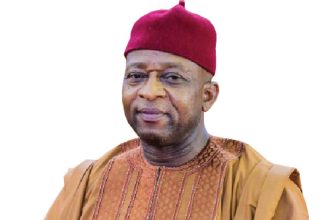President Bola Tinubu has declined to sign the National Drug Law Enforcement Agency Amendment Bill, 2025, recently passed by the National Assembly, citing constitutional violations.
The News Agency of Nigeria reported that the bill sought to empower the NDLEA to retain a portion of proceeds from drug-related crimes, a departure from the current legal framework.
The President’s decision was conveyed to the House of Representatives during Thursday’s plenary session, as read by Speaker Rep. Tajudeen Abbas.
President Tinubu referenced Section 58, Subsection 4 of the 1999 Constitution as the basis for his rejection, stating that the bill “was a contravention of the aforementioned sections” if signed into law.
In his explanation, the President clarified that existing legislation mandates all crime proceeds to be deposited into the Confiscated and Forfeited Properties Account. He emphasized that “any disbursement to relevant agencies involved in recoveries must be made by the President, and only with the approval of the Federal Executive Council and the National Assembly.”
The rejected amendment would have altered this established procedure by allowing the NDLEA direct access to portions of confiscated drug proceeds.
This decision maintains the current financial oversight framework for recovered assets, ensuring all such funds remain under centralized government control subject to legislative and executive approval processes.
The NDLEA Amendment Bill had generated significant debate during its passage through the National Assembly, with proponents arguing it would enhance the agency’s operational capacity, while critics raised concerns about potential misuse of funds.
President Tinubu’s rejection signals the administration’s commitment to maintaining strict constitutional compliance in financial matters, particularly regarding the handling of assets recovered from criminal activities.
The bill now returns to the National Assembly, where lawmakers may choose to revise it to address the President’s constitutional concerns or override the veto with a two-thirds majority vote in both chambers.
Legal experts note this development highlights ongoing tensions between executive authority and legislative initiatives in Nigeria’s democratic system, particularly regarding control of financial resources in anti-crime operations.
The NDLEA continues its operations under the existing legal framework, which requires it to remit all confiscated drug proceeds to the federal government for proper accounting and potential redistribution through approved channels.




